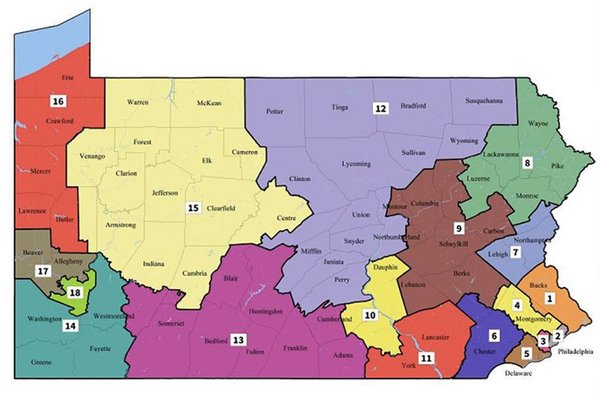President Donald Trump is urging Pennsylvania Republicans to challenge the new version of Pennsylvania's congressional map after the state Supreme Court had it redrawn.
In a tweet, Trump said the new map was "pushed" but the old map was "correct," and encouraged state GOP leaders to try and get the case to the U.S. Supreme Court if necessary.
The president wrote: "Don’t let the Dems take elections away from you so that they can raise taxes & waste money!"
- RELATED STORIES
- Study: Math proves Pennsylvania's congressional districts 'almost certainly' gerrymandered
- The new maps: A visual guide to your congressional district
- Pennsylvania Supreme Court unveils new congressional map
In January, the Democratic-majority state Supreme Court ordered lawmakers to come up with a new map after deeming the old one unconstitutionally gerrymandered to favor Republicans.
Under the court's order, the Republican-controlled state legislature was told to send a revised map to Democratic Gov. Tom Wolf for his approval.
If the two sides couldn't come to an agreement, the court said it would redo the map itself.
Predictably, Wolf and GOP lawmakers reached a stalemate. Republicans came up with a map, but Wolf rejected it and proposed his own alternative.
Under the new map issued by the court, Democrats are expected to gain an advantage in some Pennsylvania races, and the redrawn districts could help the party's chances of retaking the U.S. House during the 2018 midterm elections.
The old map, often cited as among the most gerrymandered in the country, had Republicans holding 12 of the state's 18 congressional seats despite registered Democratic voters outnumbering Republicans 5-to-4 in the state. The old map can be seen below.
"Implementation of this map would create a constitutional crisis where the Pennsylvania Supreme Court is usurping the authority of the Legislative and Executive branches," state Senate President Pro Tempore Joe Scarnati said . "We anticipate further action in federal court."

